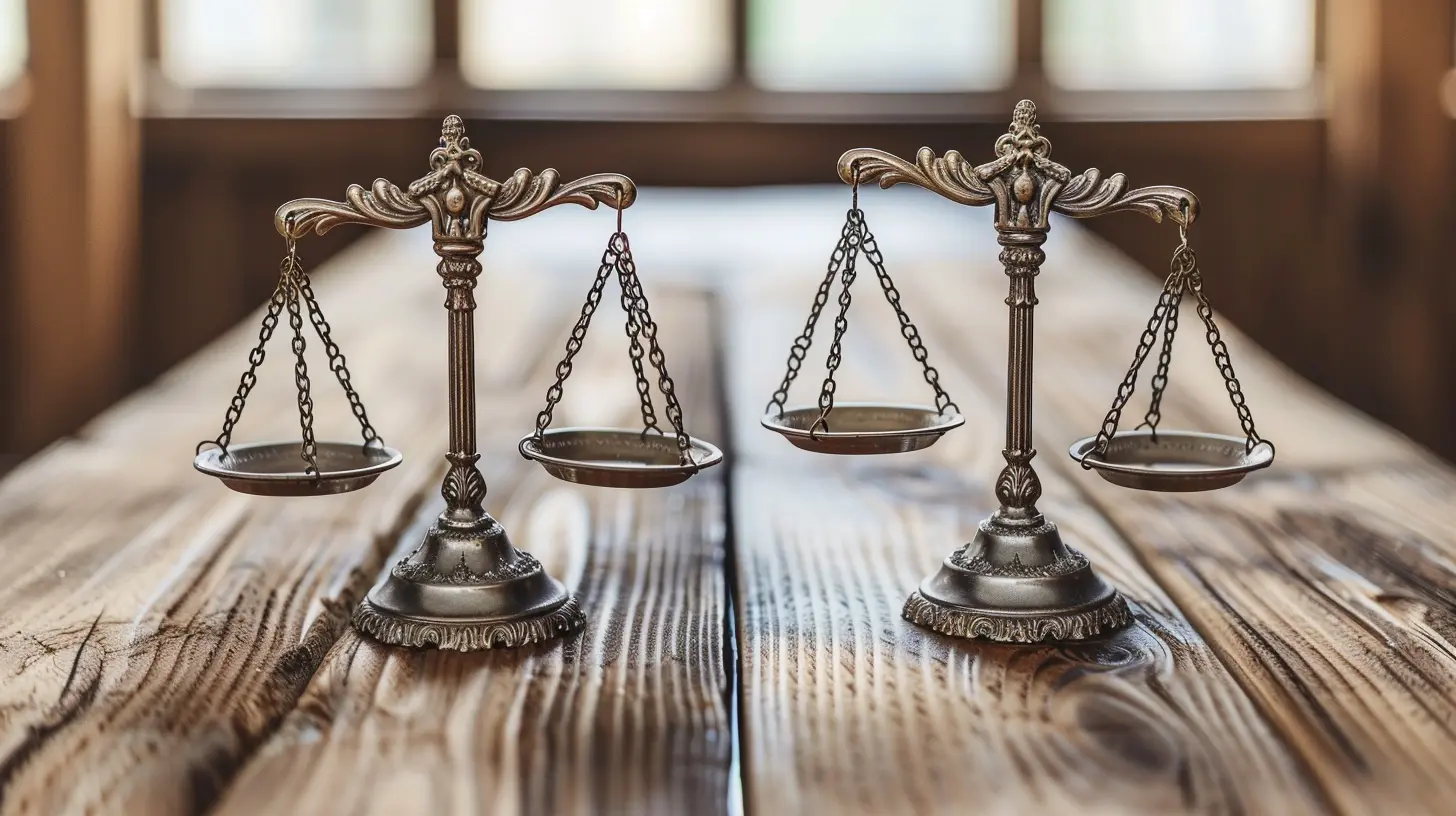Public Relations Ethics: Why Integrity Matters
24 November 2025
In the world of public relations (PR), trust is everything. If you’re in PR, your job is all about shaping public perception and maintaining a positive image for brands, individuals, or organizations. Sounds powerful, right? But with great power comes great responsibility—and that's where ethics, especially integrity, step into the spotlight.
Let’s face it: the PR industry doesn’t always get the best rap. Some think it’s just spinning stories to cover mistakes or distract from what’s really going on. But ethical PR goes beyond smoke and mirrors. It’s about telling the truth, building trust, and doing right by others—even when no one’s looking.
So let’s talk about why integrity isn’t just a “nice-to-have” but an absolute must in PR. Buckle up, because we’re going to dive deep into how PR ethics work, the consequences of getting it wrong, and what you can do to stay on the right side of the line.
What Are Public Relations Ethics, Anyway?
Public relations ethics are the moral guidelines and professional standards PR professionals follow to ensure honesty, transparency, and accountability in their work. Think of it like a moral anchor that keeps the ship steady in rough waters. It’s not just about avoiding lies—it’s about being fair, respectful, and responsible in all forms of communication.Most PR pros follow ethical codes set by respected organizations like the Public Relations Society of America (PRSA). These codes typically stress:
- Honesty
- Accuracy
- Loyalty
- Advocacy
- Fairness
- Independence
At its core, PR ethics are about doing the right thing—not just when it's convenient, but always.
Why Integrity Is the Heart of PR
Let’s put it simply: without integrity, public relations falls apart. Imagine trying to build a house of cards in a windstorm—that’s what unethical PR is like. It might stand for a minute, but sooner or later, it crashes.Integrity is being honest and sticking to moral principles, even when it’s tough. In PR, it means being transparent with clients, the media, and the public. It means saying, “Hey, we made a mistake,” instead of covering it up. It means representing only what’s true and never misleading for a quick win.
And here’s the kicker: audiences today are smarter and more skeptical than ever. Thanks to social media and instant access to information, people can sniff out dishonesty a mile away. Once trust is broken, it’s incredibly hard to rebuild. Integrity keeps that trust strong, even in a crisis.
Real Talk: What Happens When PR Ethics Are Ignored?
Let’s not sugarcoat it—when ethics are neglected in PR, things can get ugly real fast. Here are some all-too-common consequences:1. Damaged Reputation
A brand’s reputation is like a bank account—it takes time to build and just seconds to drain. One unethical PR stunt can wipe out years of goodwill. Want an example? Think of any brand that’s been caught faking testimonials or misleading customers. The backlash? Swift and brutal.2. Legal Troubles
Lying or omitting key info can lead to lawsuits or regulatory fines. Misrepresenting facts in financial reports or health-related products isn’t just shady—it’s illegal.3. Loss of Trust
Once the public feels duped, they’re gone. Customers, partners, and journalists will think twice about working with someone who bends the truth. That can spell the end of business relationships, campaigns, and even careers.4. Internal Chaos
Unethical behavior doesn’t just affect the outside world—it creates friction inside companies too. Employees lose morale, communication breaks down, and culture takes a hit. Would you want to work for a company where lying is just “part of the game”? Didn’t think so.
Key Pillars of Ethical Public Relations
Let’s break down the main components of ethical PR. Consider this your PR version of a moral compass.1. Transparency
Be open and honest about who you're representing and why. Don't try to pull a fast one on your audience. Always disclose affiliations, sponsorships, and intentions.2. Accountability
Own up to mistakes. If a campaign didn’t go as planned or incorrect info was shared, address it head-on. Accountability shows maturity and builds respect.3. Fairness
Treat media, clients, and the public with respect. Don’t play favorites or manipulate relationships for personal gain.4. Confidentiality
There’s a line between transparency and oversharing. Ethical PR pros know how to protect sensitive info while still being honest.5. Advocacy
Yes, your job is to promote your client—but ethically. You’re their biggest cheerleader, but that doesn’t mean cheering on bad behavior.Ethical Dilemmas in PR: What Would You Do?
Ethical gray areas pop up all the time in PR. Let’s walk through a few real-life scenarios that’ll get you thinking.Scenario 1: The Inflated Testimonial
Your client wants to create a video featuring customers who “loved the product”—except there aren’t any customers yet. They ask you to hire actors to pretend they’re satisfied users. Seems harmless, right? Hold up. That’s misleading and unethical.📌 The ethical move: Be honest. Suggest a launch campaign instead where real testimonials are captured over time.
Scenario 2: Burying Bad Press
A negative article is about to drop. Your client wants you to release a feel-good, distraction piece at the same exact time to bury it. Smart tactic or shady behavior?📌 The ethical move: Prepare a transparent response instead of trying to distract. Address the concerns head-on.
Scenario 3: Leaking Insider Info
You're at an industry event and overhear a juicy tidbit from a competitor’s strategy. It could give your client a leg up—but using it means breaking a confidentiality agreement.📌 The ethical move: Don’t use the info. Stay above the fray.
Why Ethics Give You a Competitive Edge
Now, here’s the interesting part. Being ethical doesn’t just keep you out of trouble—it actually gives you an edge.Long-Term Relationships
Clients, media, and consumers are more likely to stick with brands and PR teams they trust. When you consistently show integrity, people want to work with you again and again.Increased Credibility
Media outlets take ethical PR pros more seriously. They’re more likely to publish your pitches and value your insights because they know you’re playing it straight.Better Crisis Management
When a company already has a reputation for honesty, the public is more forgiving during a crisis. They’re willing to give you the benefit of the doubt.Stronger Teams
An ethical culture attracts top talent. No one wants to work in a “cover-up” environment. When integrity is part of the DNA, collaboration and morale thrive.How Can PR Professionals Stay on the Right Track?
Let’s be real—temptations to cut corners will never fully go away. But there are ways to stay grounded in ethics, even under pressure.1. Know the Codes
Familiarize yourself with professional ethics codes like those from PRSA or CIPR. These aren’t just guidelines—they're lifelines when you're unsure what to do.2. Follow the “Front Page” Test
Before sending out any PR material, ask yourself: Would I be okay seeing this on the front page of a newspaper? If the answer’s no, rethink it.3. Encourage Open Dialogue
Create a culture where team members feel safe calling out unethical practices. Have regular chats about ethics—it’s not a one-and-done.4. Choose Clients Wisely
If a client consistently pushes you to bend the truth or play dirty, it might be time to part ways. Your integrity is worth more than a paycheck.The Future of PR Ethics
With AI, deepfakes, and sponsored content becoming the norm, the line between real and fake will only blur more. That’s why ethics will matter even more moving forward.Ethical PR will move from being a differentiator to a necessity. Clients and audiences will expect transparency and responsibility as standard practice, not just a bonus.
And here’s the silver lining: those who stick to their ethical guns will come out on top. Why? Because trust is the one commodity that never loses value.
Final Thoughts: Integrity Isn’t Optional
Look, PR isn’t just about creating buzz. It’s about building bridges—between brands and audiences, between companies and communities. And you can’t build a strong bridge on shaky ground. Integrity is the foundation.So whether you're a seasoned PR pro or just getting started, never underestimate the power of doing the right thing—even when it’s hard, even when no one’s watching. That’s the kind of PR that stands the test of time.
all images in this post were generated using AI tools
Category:
Public RelationsAuthor:

Amara Acevedo
Discussion
rate this article
1 comments
Alice Carey
Integrity builds trust, fostering lasting relationships and business success.
December 2, 2025 at 11:26 AM

Amara Acevedo
Absolutely! Integrity is the cornerstone of effective public relations, enabling trust which is essential for successful relationships and long-term business growth.


